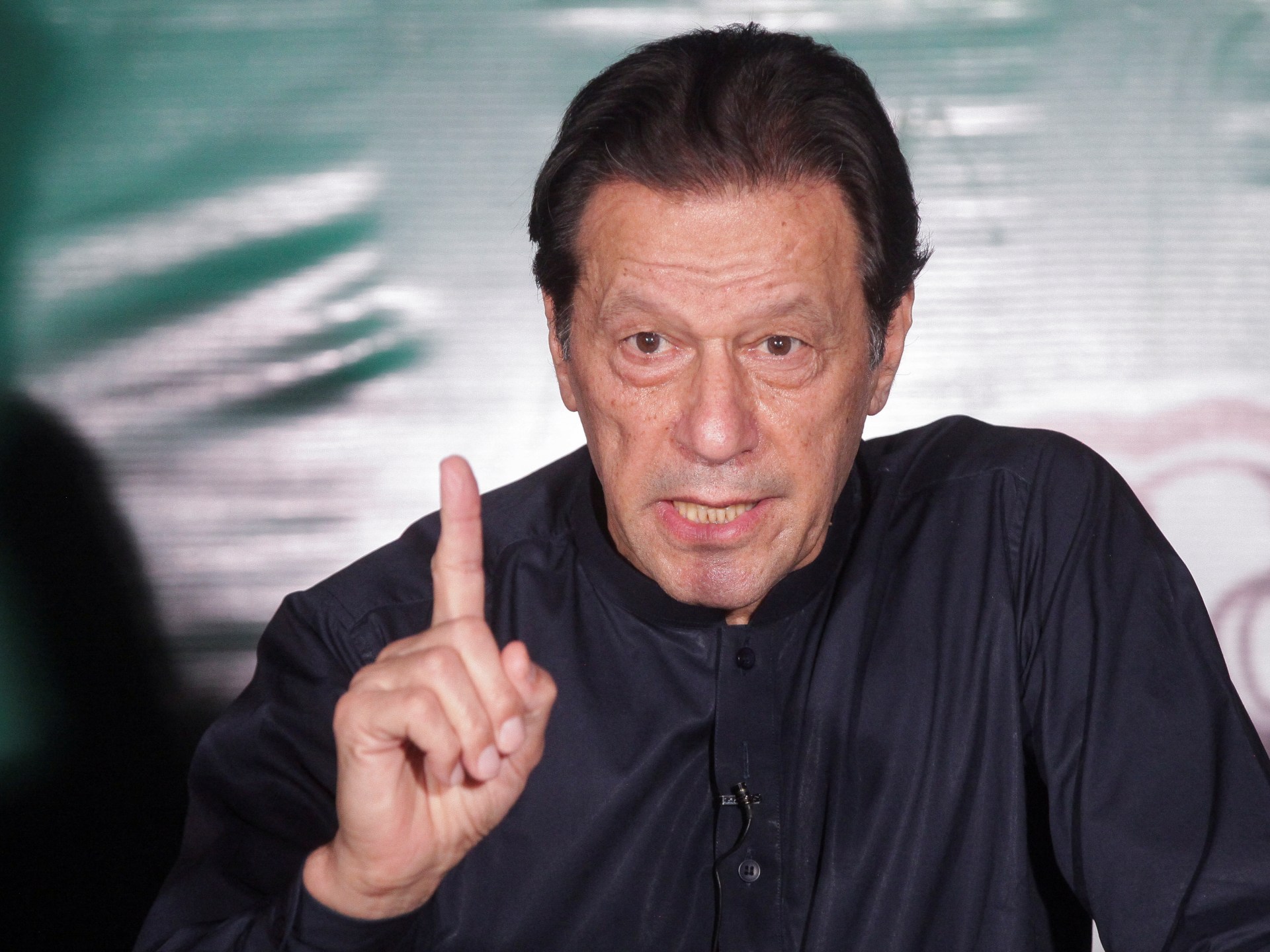Former Pakistani Prime Minister Imran Khan said his party will emerge victorious from the current confrontation because parties cannot be destroyed through bans or exclusion, stressing that there is "no dialogue" with the military at the moment.
The opposition politician's comments, considered the most popular in Pakistan, reflect the deterioration of the relationship between him and the military establishment, which has ruled the country for more than 3 decades, and whose influence remains wide behind the scenes of politics.
In an interview with AFP at his home in Lahore on Thursday evening, Imran Khan said: "It is clear that the current army commander (General Asim Munir) has a problem with me."
"I don't know what will happen in the future, but now there is no dialogue," the former prime minister said.
Imran Khan, 70, was arrested last week hours after he repeatedly accused a senior intelligence officer of involvement in an assassination attempt in November.
Pakistan witnessed days of turmoil after his arrest, as supporters of the leader of the Tehreek-e-Insaf party took to the streets, protesters set fire to official headquarters, and military installations were damaged, in events that killed 9 people, before the Supreme Court declared Imran Khan's arrest invalid.
Imran Khan, a former cricket star, said Prime Minister Shahbaz Sharif's government feared facing him in general elections that were supposed to be held by October at the latest.
The former prime minister, who sat down during the dialogue between the state flag and the Equity Movement, said: "Our party has been facing repression for a year now."
The politician, who seemed tired but determined to confront, said: "I was removed from power by a conspiracy by the former army chief."
"External elements"
Imran Khan said the violence in Pakistan over the past week was a "conspiracy" to justify pressure on his party.
Security forces arrested more than 7,19 people in connection with the violence and arrested at least <> officials of the Justice Movement, some in nightly raids on their residences, on charges of inciting violence.
Interior Minister Rana Thana Allah said: "This terror and attack were planned in advance, and Imran Khan did it." The authorities have vowed to try those accused of involvement in the targeting of military installations before military courts.
But Imran Khan said "external elements" had infiltrated the protests to discredit them, explaining that they "deliberately incited violence and were not part of a party" but that their actions were taken as "a pretext to suppress a party".
Since Imran Khan's release last week, a number of his party officials have been arrested, while others have resigned due to pressure from the authorities. Imran Khan said: "As we speak, they are arresting more and putting them in jail."
The former prime minister faces several issues, some linked to the recent violence, but his party sees them as an attempt to put obstacles to his return to power.
Imran Khan insists his party will emerge victorious from this confrontation because "political parties cannot be destroyed through bans" or exclusion from elections.
"Whenever people are with you, don't become attached to candidates or names. My party is what will keep this country together."
Imran Khan has left the door open to a possible negotiation with the military, although he accused the intelligence services, specifically General Faisal Naseer, of involvement in the assassination attempt when he was shot in the leg months ago.
"Believe me, there is no problem on my part. No one wants to face their army."

